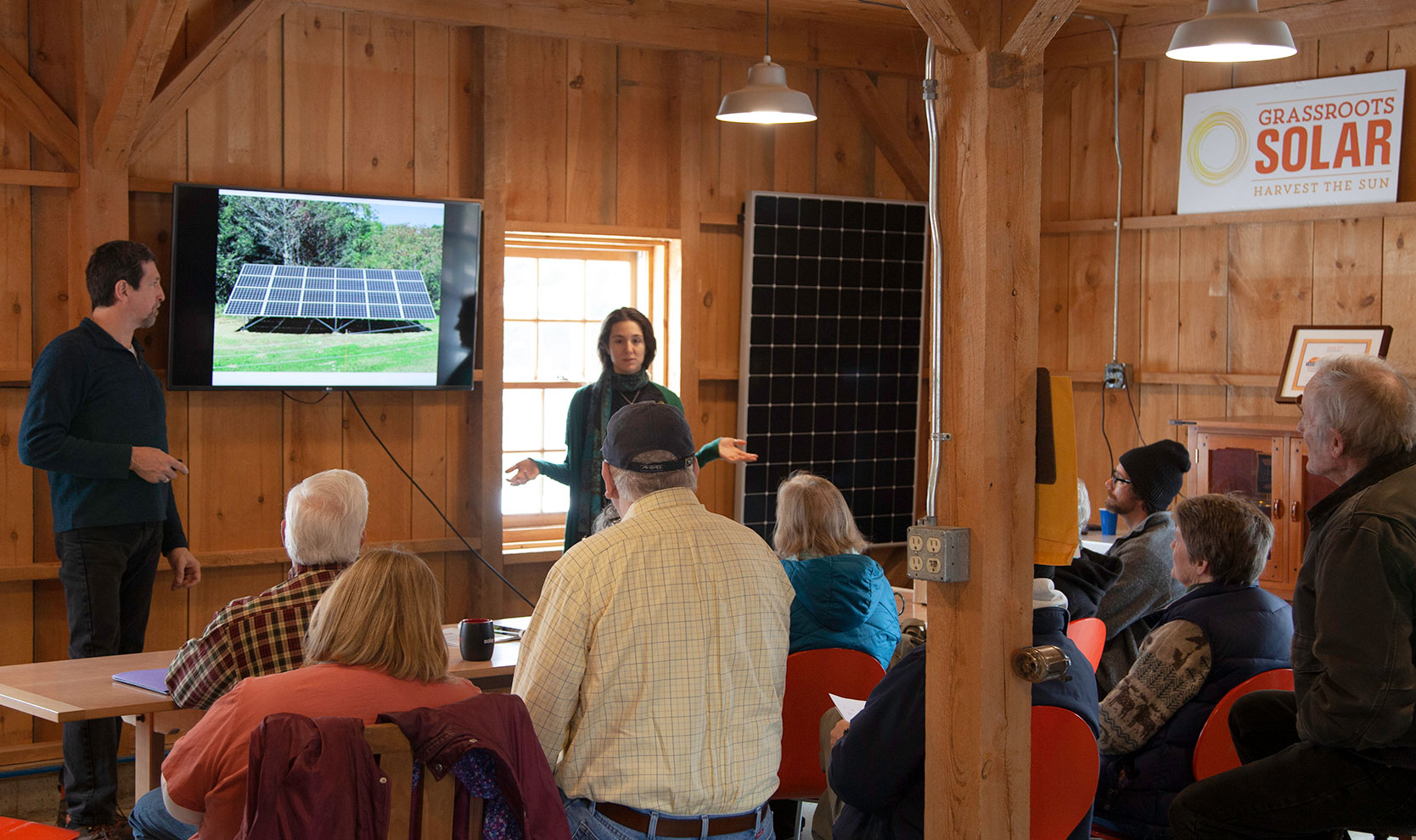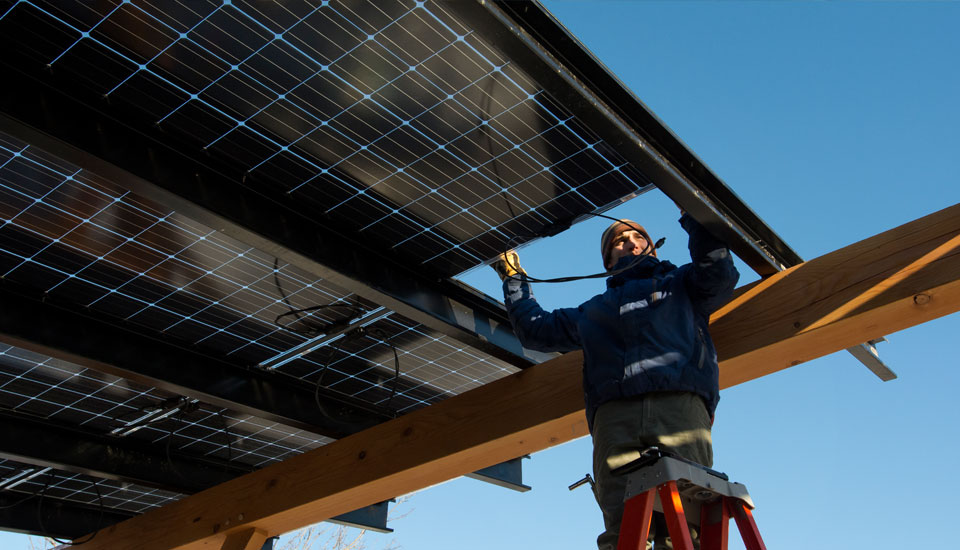Solar Fundamentals
If you have utility bills, including an electric bill, heating bill or transportation fuel costs, solar can help you reduce the costs you pay every month. *Solar electricity that you produce during the summer gets stored as a credit on your bill for use during the winter* months through net-metering. (https://grassrootssolar.com/net-metering/)
If you are looking to replace your fuel oil or propane with efficient, electric powered, cold-climate heat pumps, also referred to as mini-splits, then *solar electricity can power your heating and cooling*. Yet another bill you no longer worry about.

President Bill Laberge and his daughter Danielle, Site Designer with Grassroots Solar, hold workshops throughout the year to explain how solar works and the tremendous benefits it provides—to the home owner, business owner, and the planet!
And solar power can offset your transportation costs if you plan to get an electric vehicle. Electric vehicles (https://www.revermont.org/go-renewable/transportation/) require less maintenance than gas powered cars, and you’ll be glad to have home-grown fuel, with only a few additional panels required to power your car all year.
Solar Incentives
Vermont boasts more than enough sun to power your electric use with solar panels. We also have plenty of incentives in place for 2019 to make this the year to put solar at the head of your project list.
2019 is the last year that the federal solar tax credit (https://www.energystar.gov/about/federal_tax_credits/2017_renewable_energy_tax_credits) remains a full 30%. After this year, the tax credit will sunset, so if you want the most out of your system, a 2019 installation will deliver the best value. The federal tax credit also applies to on-site preparation for solar, covering tree removal, and even a portion of roofing expenses if they are solar-related.
Big Benefits for Commercial Solar
Businesses investing in solar to lower their overhead costs can take an additional 7.2% tax credit on their state taxes, AND businesses can claim bonus equipment depreciation up to 100% the first year, making solar power a wise business strategy with an excellent return.
Deadlines
The Vermont state solar incentive takes the form of a production bonus that net-metering customers receive from the state, now set to reimburse solar customers at three cents higher than retail rate for the power they produce when they install and for the next ten years. We also have a fast-approaching state deadline on June 30th, 2019, after which the bonus will be dropped to two cents above retail rate per unit of energy over 10 years. Your solar does not have to be operational by June 30th to get grandfathered in, but your permit paperwork (prepared by your installer) does need to be in to the state office by that date to get the better rate.
Battery Back-ups
Many folks are looking for ways to extend their solar power, and battery backup systems now provide multiple use options for using your power, during expensive peak times for those with a time-of-use rate, using your solar at night, or during power outage.
Superior Financing Options Here
Excellent financing is available for those who want to avoid tying up a chunk of change in the equipment costs, with $0 down, low interest rates and 30% interest free for the first 15 months, enabling you to apply your tax credit to the principal within the first year of the loan. Solar power is warrantied for 25 years, with a useful life of 40 years, so once your system is paid off, your power is truly free!
